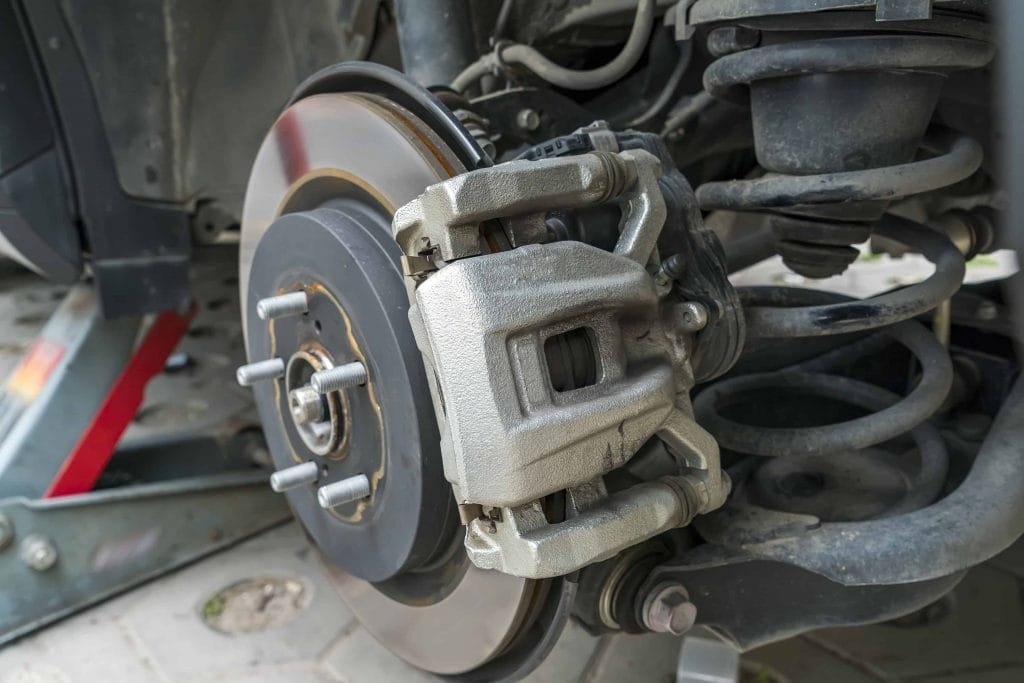Hearing a squeaking noise from your car while moving slowly can be frustrating and concerning. Whether you’re backing out of your driveway, crawling in traffic, or maneuvering into a parking space, unusual sounds can make you wonder if something is wrong.
Sometimes, the noise is harmless, but in other cases, it could be an early warning sign of a mechanical issue that needs attention.
A squeaking sound can come from several parts of your car, including the brakes, suspension, tires, or even the steering system. Identifying the exact cause is crucial because ignoring it may lead to bigger problems down the road.
Some noises occur due to normal wear and tear, while others indicate something needs lubrication, adjustment, or repair.
In this guide, we’ll go through the possible reasons your car makes a squeaking noise at low speeds, how to diagnose the problem, and what steps you can take to fix it before it turns into a costly repair.
Common Causes
1. Worn or Dirty Brake Components
Brakes are one of the most common sources of squeaking noises. Even when you’re not applying the brakes, worn pads or dirty rotors can produce high-pitched sounds at slow speeds.
Possible Reasons
- Brake pads are worn down: Most brake pads have wear indicators that create a squeaking noise when they get too thin.
- Dust or debris on brake rotors: Small particles can get trapped between the brake pad and rotor, causing a squeaking or grinding sound.
- Glazed brake pads: If the pads overheat, they develop a smooth, hard surface that reduces stopping power and creates noise.
- Lack of lubrication on brake components: Some brake parts, like caliper slides and backing plates, require proper lubrication.
Solutions
- Inspect the brake pads and replace them if they are worn.
- Clean the rotors with brake cleaner to remove dirt and debris.
- Lubricate key brake components with high-temperature brake grease.
- If the noise persists, a professional brake inspection is recommended.
2. Suspension and Steering Issues
A car’s suspension and steering system allow smooth movement over bumps and turns. If something is worn or dry, it can cause squeaking noises, especially at low speeds.
Possible Reasons
- Dry or worn-out ball joints: These components allow movement in the suspension and can squeak if they lack lubrication.
- Worn control arm bushings: Rubber bushings in the suspension system can dry out and cause noise.
- Tie rod end wear: If the tie rods are loose or damaged, they can create a squeaking sound during slow maneuvers.
- Shock absorbers leaking or failing: A bad shock absorber can cause the suspension to make noise.
Solutions
- Apply silicone-based lubricant to suspension bushings.
- If the noise continues, have a mechanic check for worn-out ball joints, bushings, or shocks.
- Replace any components that are excessively worn or damaged.
3. Tire and Wheel Problems
Tires and wheels can also contribute to squeaking sounds, particularly when rolling at low speeds.
Possible Reasons
- Uneven tread wear: If the tread on your tires is uneven or worn down, it can create a squeaking noise.
- Tires rubbing against the wheel well: This can happen if your tires are too large or if the alignment is off.
- Low tire pressure: Underinflated tires can cause unusual noises when moving slowly.
- Wheel bearing issues: A dry or failing wheel bearing can create a squeaky or humming sound.
Solutions
- Check your tire pressure and inflate them to the correct level.
- Inspect the tires for uneven wear and rotate them if needed.
- If the noise is coming from a specific wheel, have the bearings checked by a professional.
4. Belt and Pulley Issues
Under the hood, various belts and pulleys work together to power the alternator, air conditioning, and other systems. If they are loose or worn out, they can create a squeaking sound, especially when accelerating from a stop.
Possible Reasons
- A loose or worn serpentine belt: Over time, belts can stretch, crack, or develop a glazed surface, leading to squeaking.
- Misaligned or damaged pulleys: If a pulley is off-center or has debris stuck in it, it can cause a squeaky sound.
- Lack of belt tension: If the tensioner is weak, the belt may slip and squeak.
Solutions
- Inspect the serpentine belt for cracks or fraying and replace it if necessary.
- Check the belt tensioner and pulleys for proper alignment.
- Apply belt dressing spray to temporarily reduce squeaks (but consider a replacement if the problem continues).
5. Weather-Related Causes
Sometimes, environmental factors can cause squeaky noises, especially when moving at lower speeds.
Possible Reasons
- Cold or wet conditions: Moisture can make rubber components (like belts and bushings) squeak temporarily.
- Dust and road debris: Dirt buildup can cause minor noises until it’s washed away.
- Seasonal temperature changes: Rubber parts expand and contract with temperature shifts, which can create temporary squeaks.
Solutions
- If the noise is seasonal or weather-related, it may go away on its own.
- Washing the undercarriage of the car can help remove dirt buildup.
- Applying rubber protectant to bushings and seals can reduce seasonal squeaks.
How to Diagnose the Issue
If your car is making a squeaking noise, follow these steps to narrow down the cause:
- Listen carefully:
- Is the noise coming from the front or back?
- Does it change when you press the brakes?
- Is it more noticeable when turning the wheel?
- Inspect visible components:
- Check for worn brake pads, loose belts, or uneven tire wear.
- Look for leaks around suspension components.
- Perform simple tests:
- Bounce each corner of the car to see if the suspension makes noise.
- Turn the steering wheel at a standstill and listen for squeaks.
- Drive in an empty area and brake gently to see if the sound changes.
- Seek professional help if needed:
- If you’re unsure about the source, a mechanic can perform a thorough inspection.
When to Take Your Car to a Mechanic
While some squeaks are harmless, others may indicate a serious issue. Take your car to a professional if:
- The noise gets louder or more frequent.
- It occurs when braking, turning, or accelerating.
- There’s a noticeable decrease in braking or handling performance.
- You see fluid leaks or visible damage to components.
Ignoring a small squeak can lead to bigger problems, so it’s best to address it early.
Final Thoughts
A squeaking noise when driving slowly can come from multiple areas, including brakes, suspension, tires, belts, and even environmental factors. Identifying the source early can prevent expensive repairs down the road.
Simple maintenance, like lubricating moving parts, checking tire pressure, and cleaning brake components, can help resolve minor noises. However, if the sound persists or worsens, seeking professional advice ensures your car remains safe and reliable.





